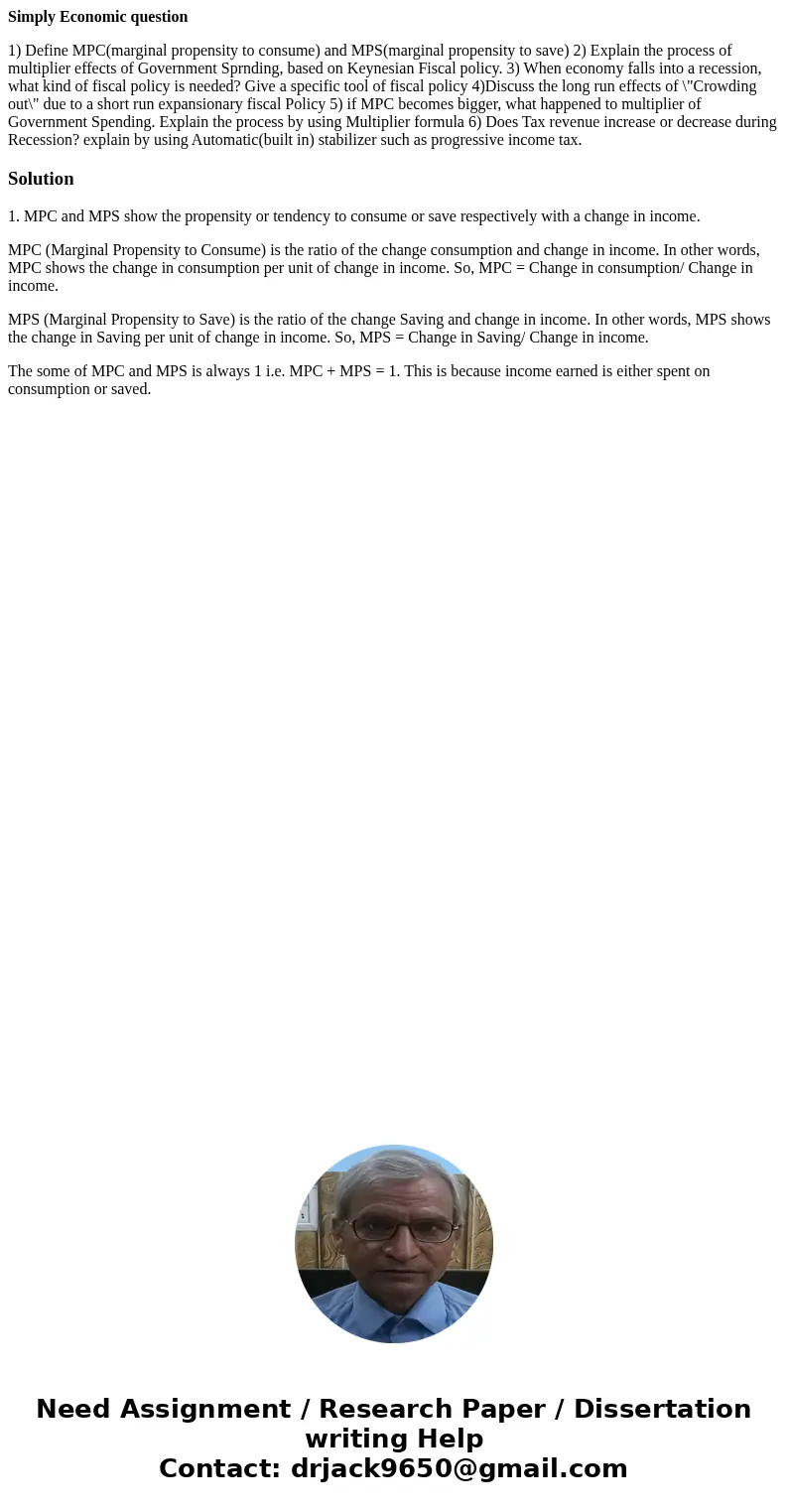Simply Economic question 1 Define MPCmarginal propensity to
Simply Economic question
1) Define MPC(marginal propensity to consume) and MPS(marginal propensity to save) 2) Explain the process of multiplier effects of Government Sprnding, based on Keynesian Fiscal policy. 3) When economy falls into a recession, what kind of fiscal policy is needed? Give a specific tool of fiscal policy 4)Discuss the long run effects of \"Crowding out\" due to a short run expansionary fiscal Policy 5) if MPC becomes bigger, what happened to multiplier of Government Spending. Explain the process by using Multiplier formula 6) Does Tax revenue increase or decrease during Recession? explain by using Automatic(built in) stabilizer such as progressive income tax.Solution
1. MPC and MPS show the propensity or tendency to consume or save respectively with a change in income.
MPC (Marginal Propensity to Consume) is the ratio of the change consumption and change in income. In other words, MPC shows the change in consumption per unit of change in income. So, MPC = Change in consumption/ Change in income.
MPS (Marginal Propensity to Save) is the ratio of the change Saving and change in income. In other words, MPS shows the change in Saving per unit of change in income. So, MPS = Change in Saving/ Change in income.
The some of MPC and MPS is always 1 i.e. MPC + MPS = 1. This is because income earned is either spent on consumption or saved.

 Homework Sourse
Homework Sourse